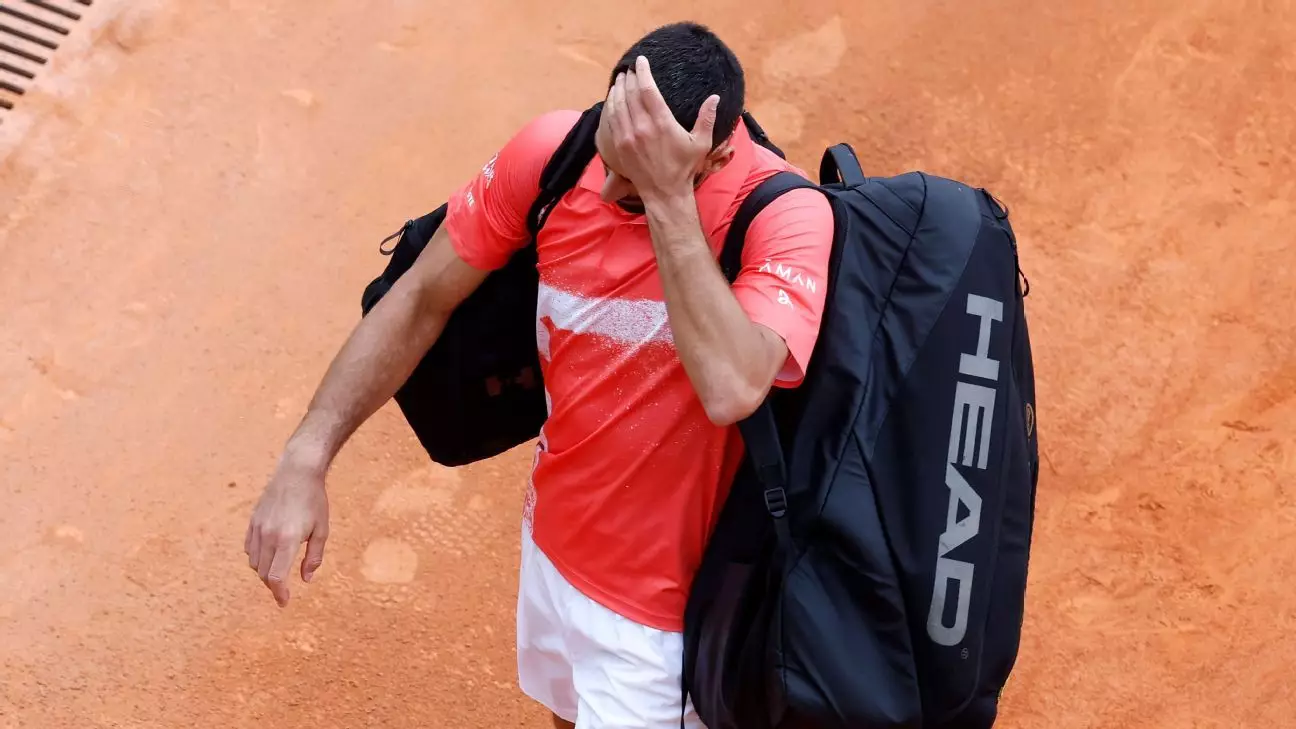Novak Djokovic’s pursuit of a historic 100th title took an unexpected turn at the Monte Carlo Masters, where he was defeated by Alejandro Tabilo in a match that left many both puzzled and impressed. Tabilo, who had previously shocked Djokovic at the Italian Open, again demonstrated he is no ordinary opponent. Winning 6-3, 6-4, the Chilean effectively executed his strategy, showcasing not just skill but mental resilience against one of tennis’ greatest legends. This match was more than just a loss for Djokovic; it was a statement from Tabilo, affirming his place on the ATP Tour.
Positivity Amidst Pressure
In a post-match interview, Tabilo reflected on the nerves that came with facing a champion like Djokovic. Remarkably, he highlighted the importance of remembering his previous success against the Serbian and leveraging that experience. “It was an unreal match,” he stated, and rightly so. Tabilo’s ability to serve effectively and maintain focus under immense pressure was commendable. This win underscores a crucial element often overlooked in professional sports: that psychological factors can influence performance as strongly as physical abilities. Tabilo’s journey from an underdog to someone who can challenge players at the highest level is emblematic of what sport is all about: overcoming fear and rising to the occasion.
Djokovic’s Uncharacteristic Struggles
Conversely, Djokovic’s performance raised concerns. With 29 unforced errors during the match, he was uncharacteristically off his game. His admission of feeling “horrible” encapsulates the frustration that can accompany a champion who has dominated the scene for so long. At nearly 38, the questions surrounding Djokovic’s capacity to compete at his peak are becoming more pressing. While he remains a formidable presence in how tennis is viewed globally, this defeat may serve as a tipping point. The inevitability of age is difficult to escape, and while legends can adapt, they cannot halt the passage of time.
A Paradigm Shift in Men’s Tennis
The Monte Carlo Masters is often a precursor to assess the readiness of players as they transition to the clay season, particularly with the French Open looming. The rapid emergence of young talents like Carlos Alcaraz and Tabilo is indicative of a shifting paradigm in men’s tennis. Players are increasingly prepared to challenge traditional powerhouses, indicating a more volatile competitive landscape. Alcaraz’s own comeback victory, reversing an earlier loss, reinforces this notion; the new generation is not settling for second-best.
The Striking Paradox of Experience and Youth
As established veterans face unexpected challenges, younger players are thriving under pressure. The likes of Tabilo and Alcaraz are not just rising stars; they represent a revolutionary shift within the sport. While Djokovic’s experience and historical context remain invaluable, the sheer determination and skill exhibited by younger athletes signify a deeper pool of competition. The stress on older players can lead to glaring inconsistencies, providing the ideal environment for new heroes to emerge.
The Road Ahead
For Djokovic, the loss may feel like a substantial hurdle, but it presents an opportunity for reflection. The road ahead leads to the French Open, a grand stage where his capability to adapt under pressure will be tested. Meanwhile, Tabilo’s victory not only reflects personal achievement but symbolizes a broader narrative of tennis evolving – one where the new generation asserts itself and reshapes the dynamics of the sport. The complex interplay of aspiration, ability, and experience within tennis continues to yield compelling storylines, revealing that every match can be both an end and a beginning.
In a sport defined by relentless pursuit and triumph, Djokovic’s stumble serves as a reminder: each athlete’s journey is a tapestry woven with triumphs, setbacks, and the spirit to rise again. Tabilo’s emergence and Alcaraz’s determination evoke excitement for what lies ahead, suggesting that the future of tennis is not just bright – it may be breathtakingly transformative.


Leave a Reply